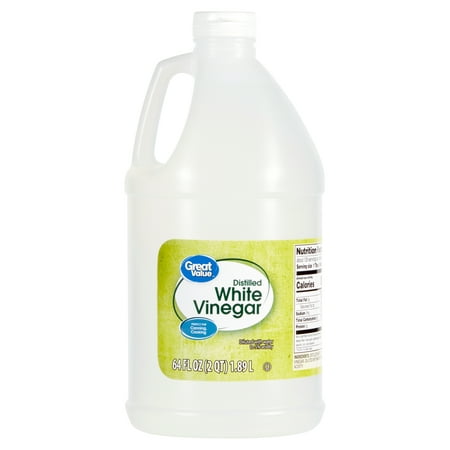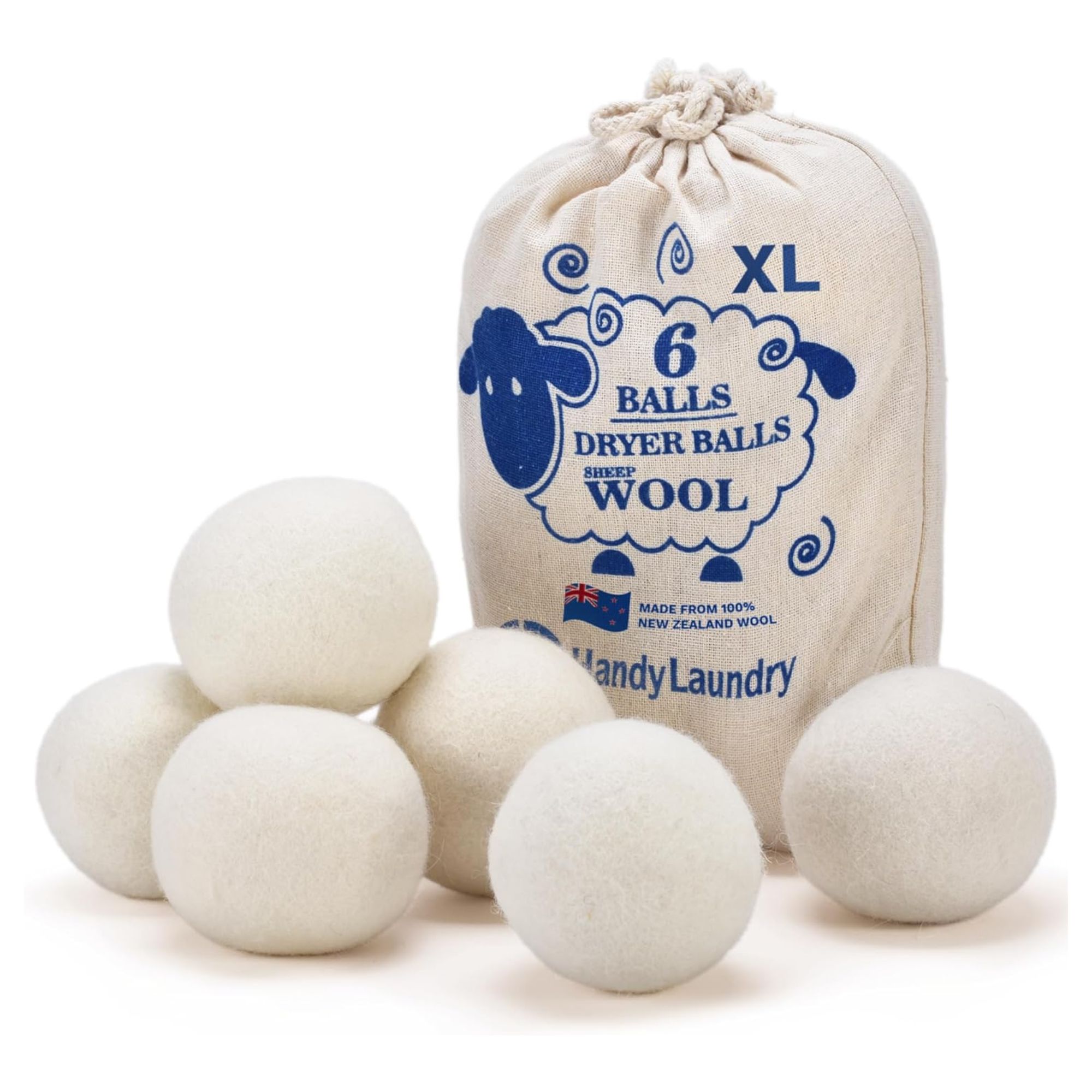Ditch your fabric softener and learn how to wash towels with vinegar instead for a fresh and fluffy feel, laundry pros say
Use this affordable pantry staple for towels that feel as soft as the day you bought them

Millie Hurst

Design expertise in your inbox – from inspiring decorating ideas and beautiful celebrity homes to practical gardening advice and shopping round-ups.
You are now subscribed
Your newsletter sign-up was successful
Want to add more newsletters?

Twice a week
Homes&Gardens
The ultimate interior design resource from the world's leading experts - discover inspiring decorating ideas, color scheming know-how, garden inspiration and shopping expertise.

Once a week
In The Loop from Next In Design
Members of the Next in Design Circle will receive In the Loop, our weekly email filled with trade news, names to know and spotlight moments. Together we’re building a brighter design future.

Twice a week
Cucina
Whether you’re passionate about hosting exquisite dinners, experimenting with culinary trends, or perfecting your kitchen's design with timeless elegance and innovative functionality, this newsletter is here to inspire
There's nothing better than using a new bath towel. They are soft, fluffy and luxurious – making you feel you've stepped straight out the shower into a spa hotel.
After a few washes, however, you might be left with something scratchy and stiff, rather than splendidly sumptuous. Caused by detergent and fabric softener building up and clogging the fibers, this is an inevitable occurrence when keeping towels clean. But, does it have to be?
It turns out there is a super simple way to restore towels to near new with a single pantry staple: vinegar. Here, our laundry pros break down everything you need to know about using white vinegar in laundry, for softer results without lingering sour smells.
How to wash towels with vinegar

Cleaning with vinegar (such as the Heinz All Natural Distilled White Vinegar with 5% Acidity available at Walmart) works brilliantly. It's inexpensive and acts as a disinfectant because the acetic acid content breaks down bacteria and viruses.
This not only thoroughly cleans, but also removes odors, so it's a good option for older towels that seem to have a faint, lingering damp smell even when freshly laundered. Vinegar also removes dirt and oils, enhancing the cleaning power of your detergent, and it doesn't have the water-repellent effects of fabric conditioner, which is why you shouldn't use fabric softener on towels.
Crucially, vinegar works to break down detergent residue, therefore softening your towels fibers once more.
Laundry expert Rechelle Balanzat, founder and CEO of Juliette, explains, 'Over time, detergent and fabric softeners build up in towels, making them less absorbent and more stiff. The acetic acid in vinegar breaks down these residues, making towels feel soft again, without buildup.'
Design expertise in your inbox – from inspiring decorating ideas and beautiful celebrity homes to practical gardening advice and shopping round-ups.
Also, just as vinegar can be used to get rid of hard water stains, it will also dissolve any pesky mineral deposits on towels. Here's how to wash towels with vinegar in just four steps.
Step 1: Swap detergent for vinegar
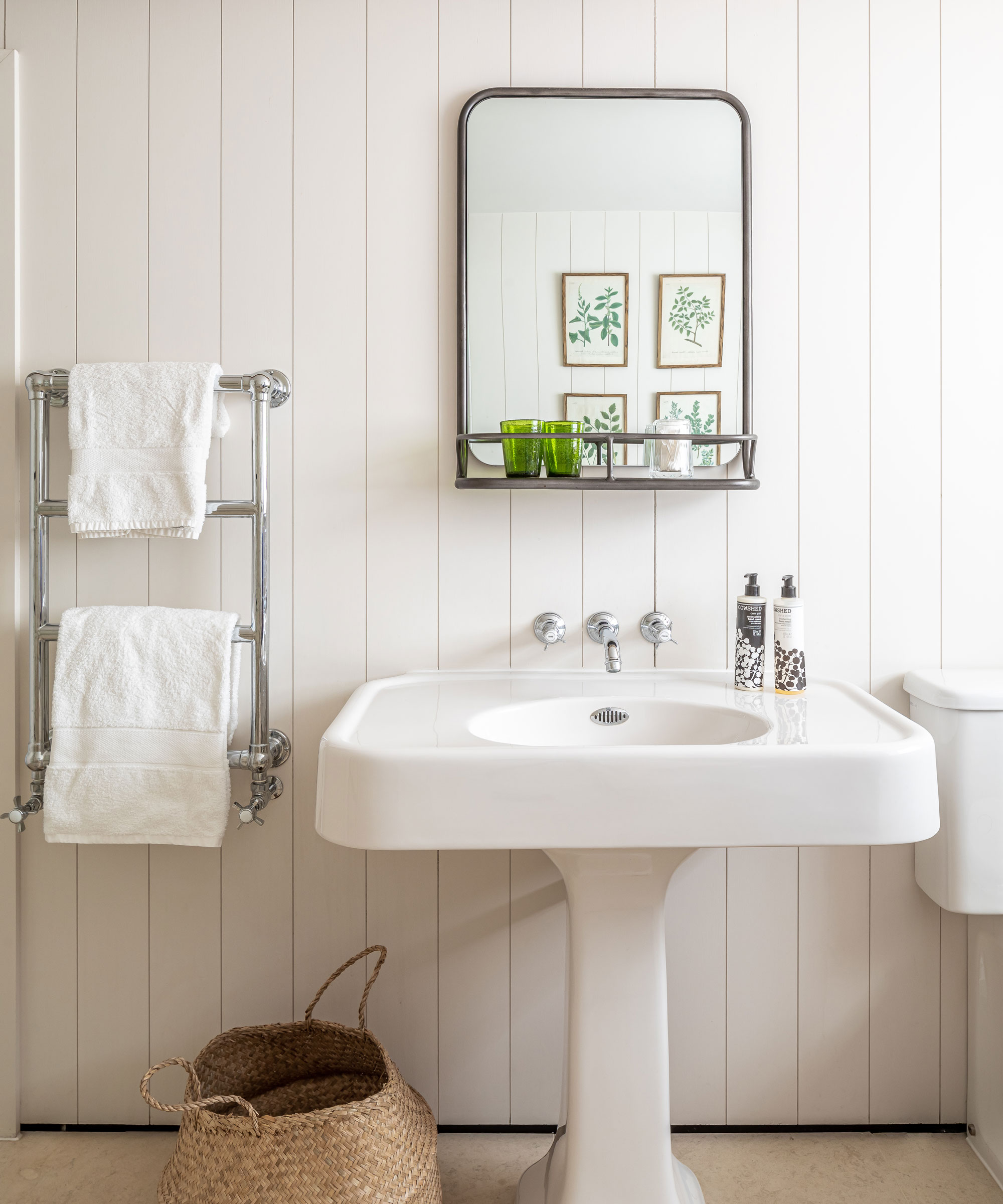
One of the best things I ever did for my clothes and linens was to cut down on laundry detergent.
Although it is an essential step when doing laundry, I discovered that using too much was actually damaging my clothes and towels, rather than refreshing them. The result was towels that were crunchy and scratchy and often had a greasy feeling when I took them out of the washing machine.
So, to get started, load your towels into the washing machine and forget about detergent entirely.
If you're not sure where to put vinegar in the washing machine, laundry pro Balanzat advises, 'Pour one cup of white vinegar directly into the fabric softener dispenser or, if there isn't one, directly into the drum.'
In general, this is enough vinegar to efficiently wash two to three large towels, but you can easily increase or reduce the amount of vinegar added as necessary without much worry of damage.
Step 2: Wash your towels
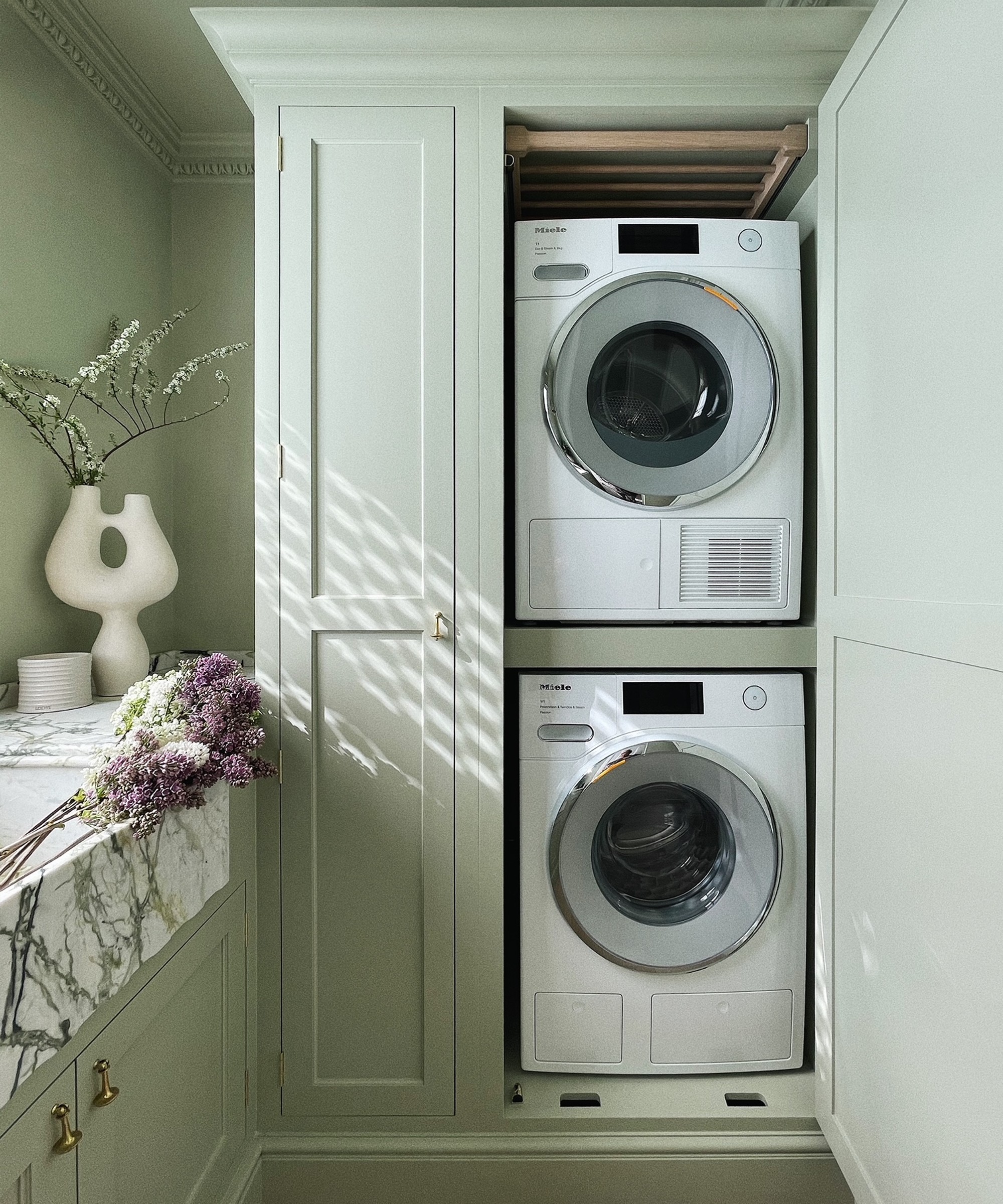
Then, according to Alessandro Gazzo, from Emily's Maids, select the hottest washing machine setting possible and let the vinegar get to work – there's no need to rinse afterward.
He says, 'I've found vinegar goes really well with hot water if you're washing towels. Hot water helps you with towels or sheets because it dissolves our natural oils and sweat from our body, and kills the types of bacteria that vinegar won't,' which is why they're items you should always wash in hot water.
Similarly to cleaning with lemon juice, white vinegar can also leave dull towels looking brighter, so you can maintain a fresh white color for longer, and get dingy whites white again.
If you're not sure how often to wash towels, cleaning expert Balanzat recommends doing so every three to four uses as a general rule of thumb. 'This keeps them free from bacteria, body oils, and odors that can build up over time,' she says.
Step 3: Repeat the cycle with baking soda
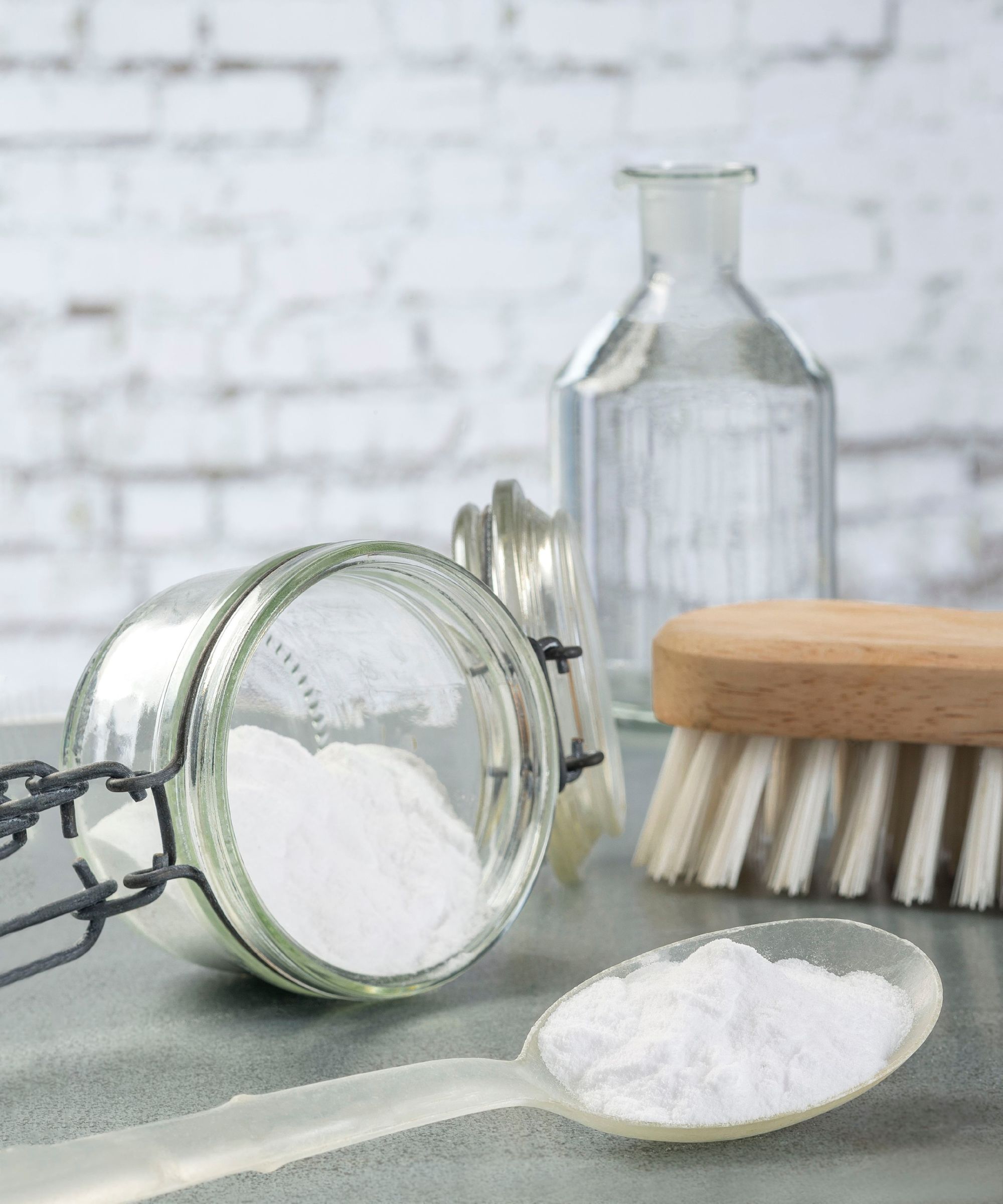
While vinegar works well to soften towels, if you are not careful, you may end up with a sour-smelling result.
A great way to combat this is to wash towels with baking soda after washing them with vinegar. Cleaning with baking soda naturally deodorizes fabric without leaving any lasting scent behind or making towels crunchy. Better yet, it can act as a natural optical brightener, whitening whites and making colors pop.
Laundry expert Balanzat advises, 'If your towels are especially musty or stiff, run a second wash cycle using half a cup of baking soda. Add the baking soda directly to the drum, and a run on a hot water without any vinegar or detergent.' This will help remove any lingering odors and make towels smell fresh, while softening them further.
Although it might seem wasteful to run two separate laundry cycles, it is for good reason. Baking soda and vinegar have a very strong reaction (something you will be aware of if you have ever used them to clean a kitchen sink drain). Mixing these ingredients in the washing machine is no different. Put a little too much in, and you will be left with a foaming mess. It is much safer and more convenient to run two, shorter cycles.
Optionally, you can then add a linen spray to make a bathroom smell nice and add a simple spa-grade touch.
Why not try making DIY linen spray, using essential oils such as the MAJESTIC PURE Lavender Essential Oil with Glass Dropper available at Amazon.
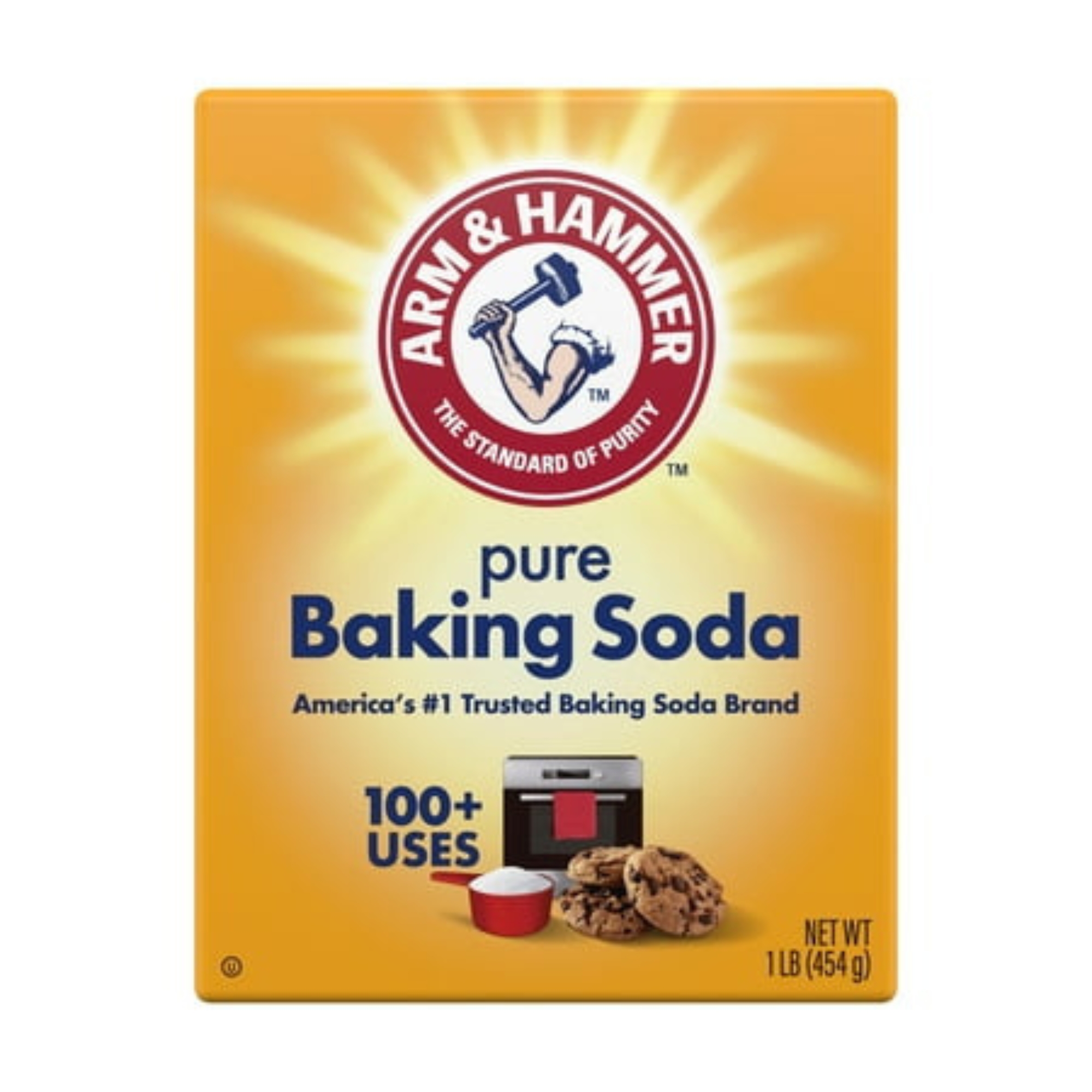
This baking soda has hundreds of uses around the house, from deodorizing and cleaning to baking and cooking.
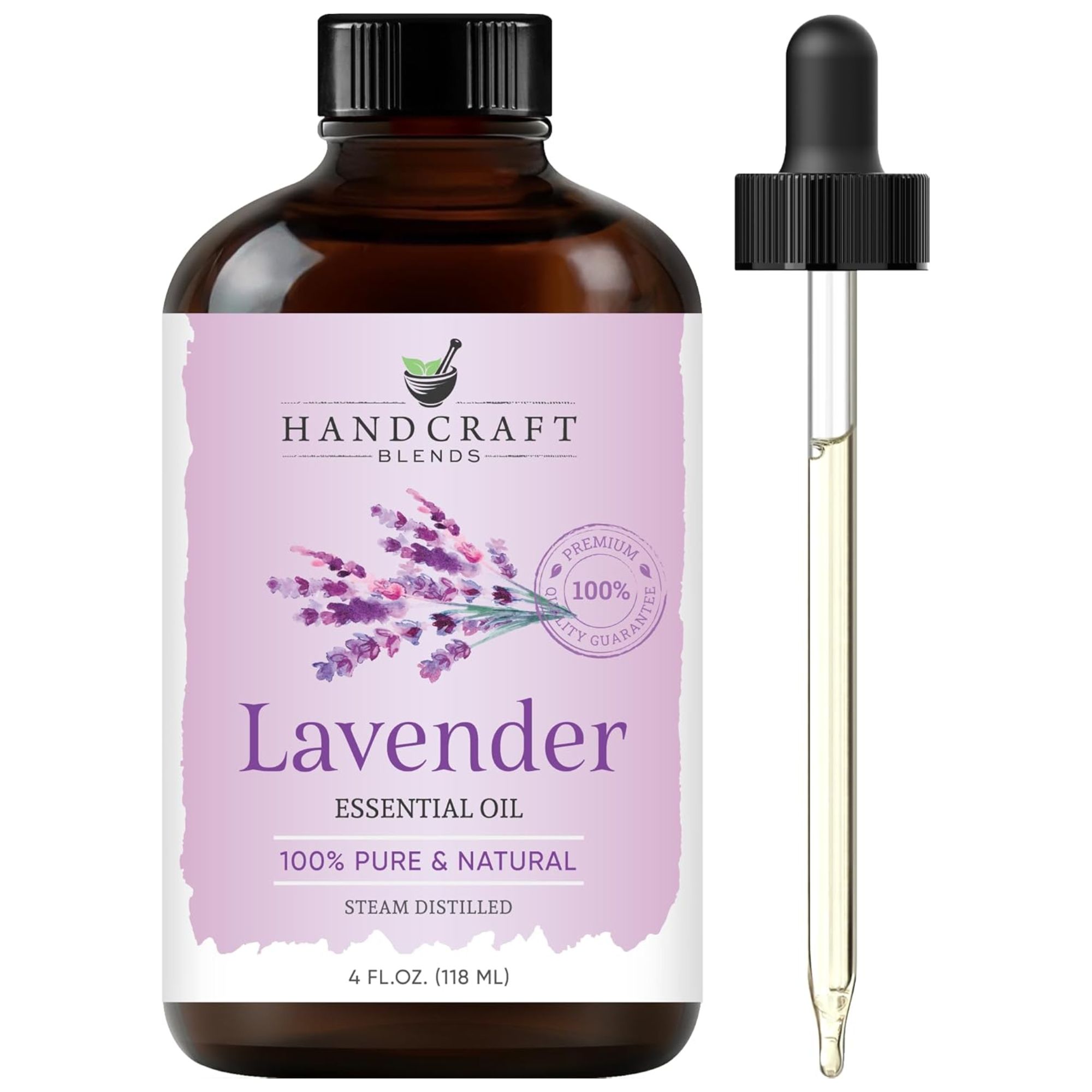
100% pure and undiluted, this essential oil has a strong, powerful aroma and premium quality.
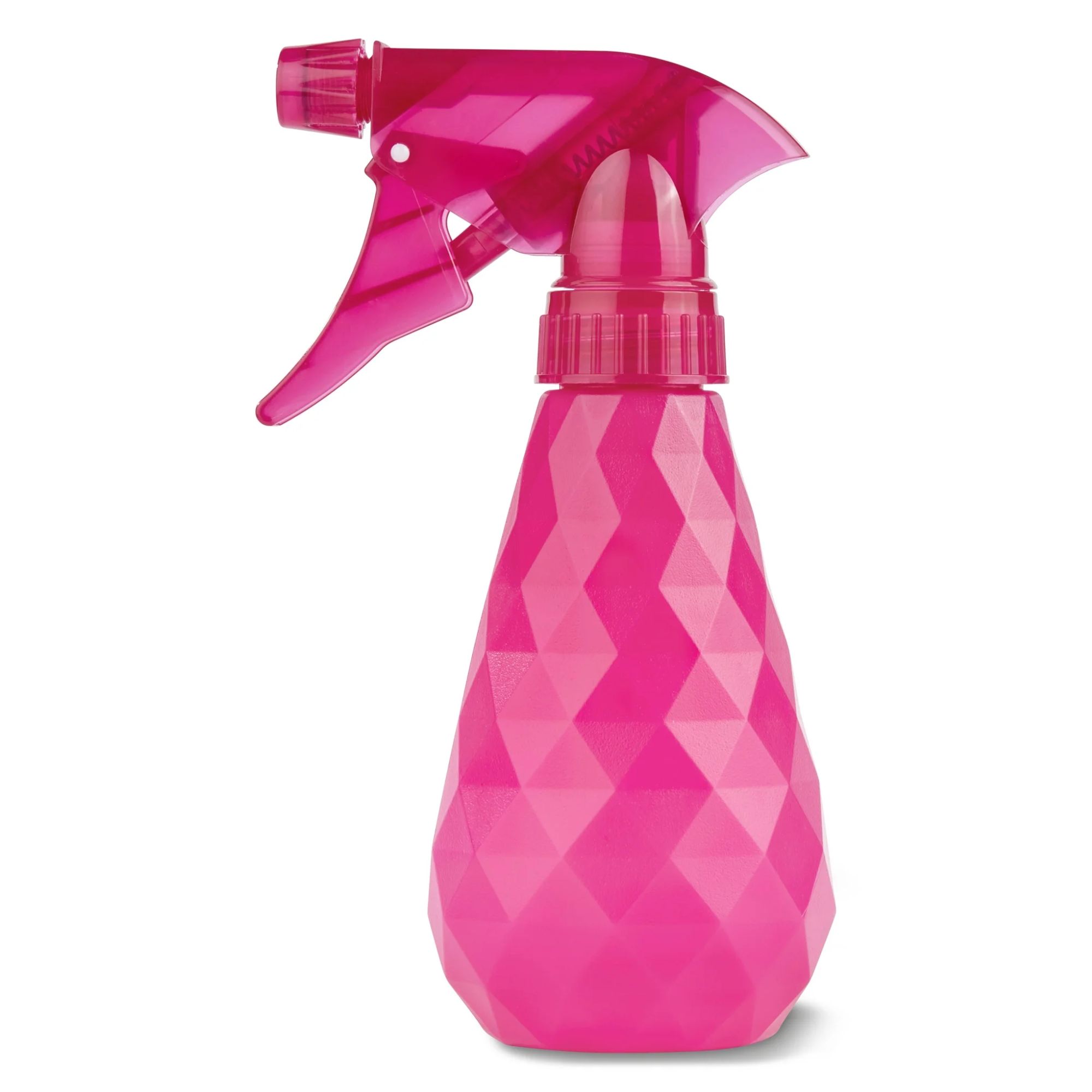
With an adjustable sprayer and two-finger grip trigger, this spray bottle is ideal for making your own linen spray at home.
Step 4: Dry thoroughly

Then, all that's left to do is to throw you towels in your best clothes dryer.
Cleaning pro Balanzat says, 'Dry the towels completely in the dryer on a medium heat setting. Add dryer balls (such as the bestselling Wool Dryer Balls available at Walmart) or clean tennis balls to help fluff them up.
'Avoid using fabric softener sheets, as they can reduce absorbency.'
It is possible to make towels soft without a dryer, by drying them with your best fan. Our tried-and-tested top pick is the Shark FlexBreeze Fan With InstaCool Mist Attachment, available at Shark.
How to keep towels soft
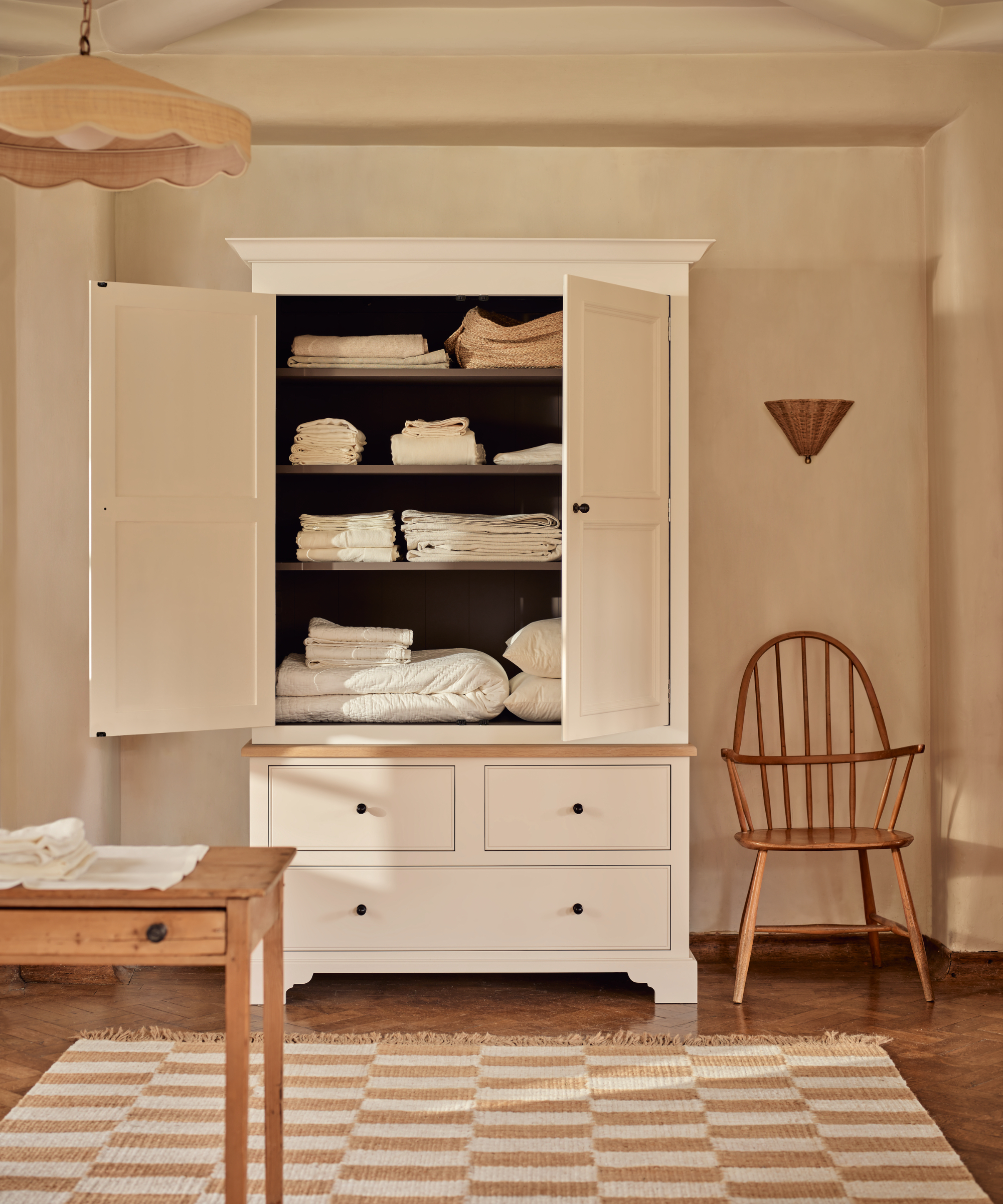
Keeping towels soft involves doing a lot less, rather than piling on more products, which will save you time, energy, money, and your towels:
- Cut back on detergent: One of the most important laundry lessons I learned from my grandmother was less detergent does more. That is not to say that you should ever wash clothes without detergent, as it is essential for regular washes to help kill bacteria and fight grease, but too much coats delicate fibers leaving items like towels scratchy and less absorbent.
- Keep your washing machine clean: You should never underestimate the power of a truly clean washing machine. A washing machine that is regularly serviced will not only make your clothes and linens cleaner and smell nicer, but will often leave them softer too, as old detergent and limescale aren't pushed onto fibers during the cycle. You can even clean your washing machine with vinegar, too.
- Invest in high quality: Not only do cheap towels not last as long as high-quality equivalents, but they will often be scratchier from the get-go, and are therefore harder to keep soft no matter how you wash them. The best bath towels, on the other hand, are easy to maintain and feel nicer for longer, so you won't end up rushing back to the store any time soon.
- Avoid overloading the washer: Cleaning expert Balanzat explains, 'Overloading means towels won’t rinse out detergent (or vinegar) fully, leading to stiffness. Allow plenty of room for them to move around in the drum,' to avoid any washing machine mistakes.
FAQs
Can you use vinegar and laundry detergent together?
It is possible to use laundry detergent and vinegar together when reviving towels, but you are likely to find that a cup of vinegar does the job on its own, making it a cost-effective and eco-friendly laundry substitute to have up your sleeve. It's also a great way to be more sustainable at home and cut down on how much detergent you are using.
Washing towels with vinegar periodically is super easy, banishes funky smells and keeps them soft. But, bear in mind that towels, just like anything else, do have a life span. If you notice any signs you need to replace your towels, donate your old ones to a pet shelter and follow our rules for buying towels to get the best ones.

Chiana is Homes & Gardens’ kitchen appliances editor. With a lifelong passion for cooking and baking, she grew up experimenting in the kitchen every weekend with her baking-extraordinaire Mom, and has developed a great understanding of how tools and appliances can make or break your ideal relaxing kitchen routine.
- Millie HurstContributing Editor
